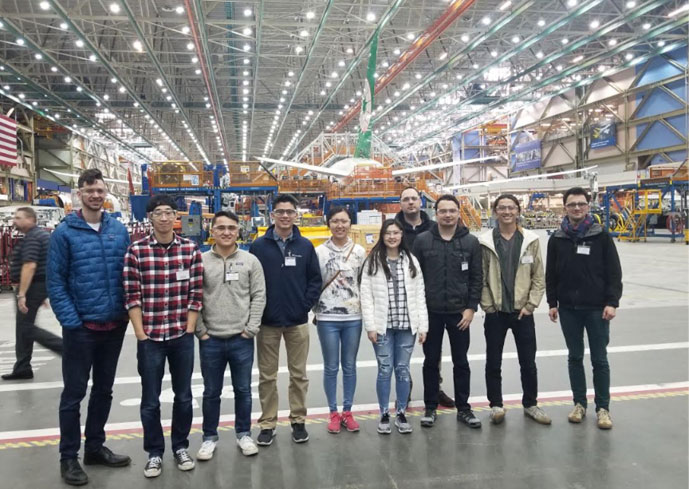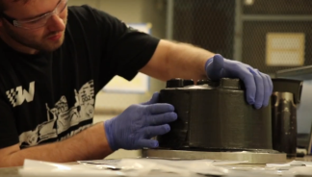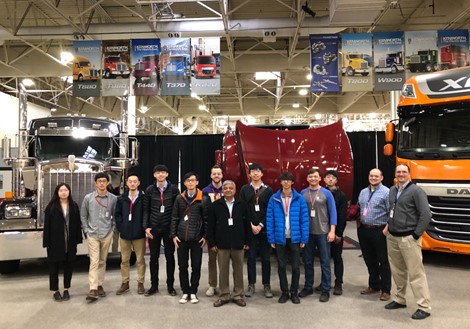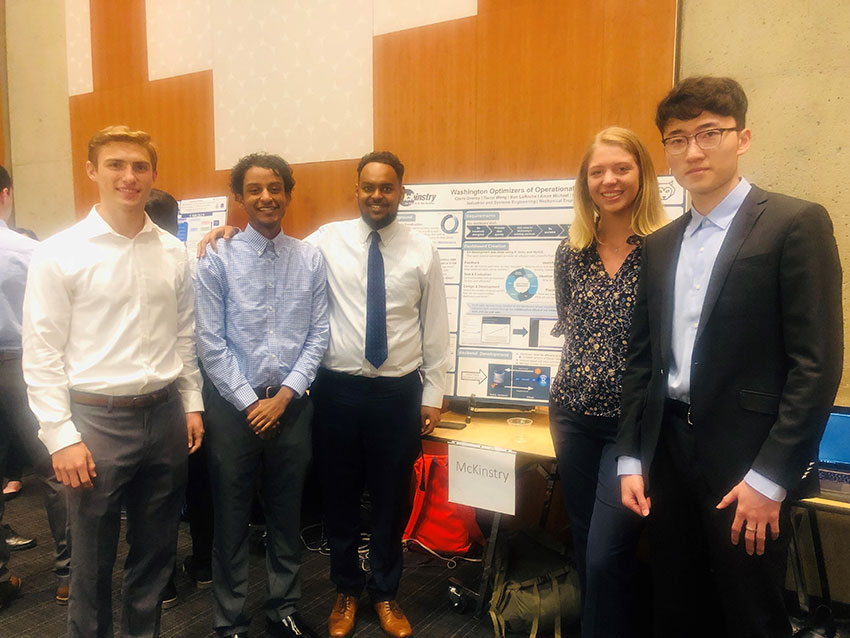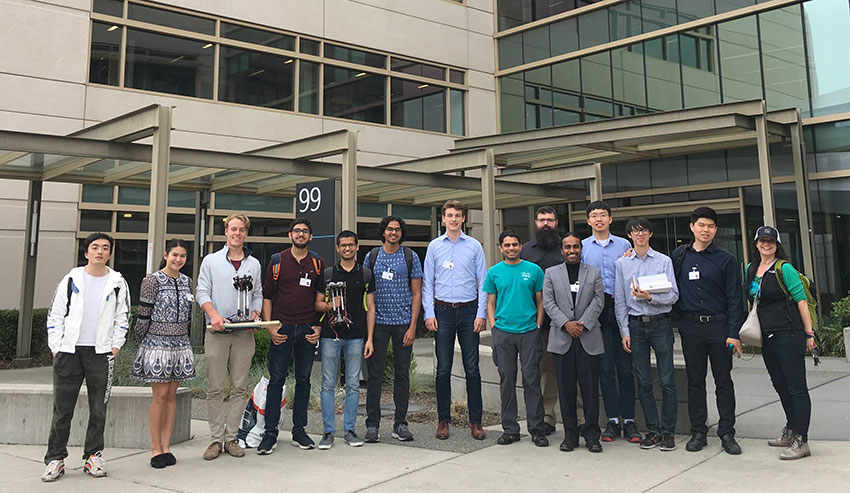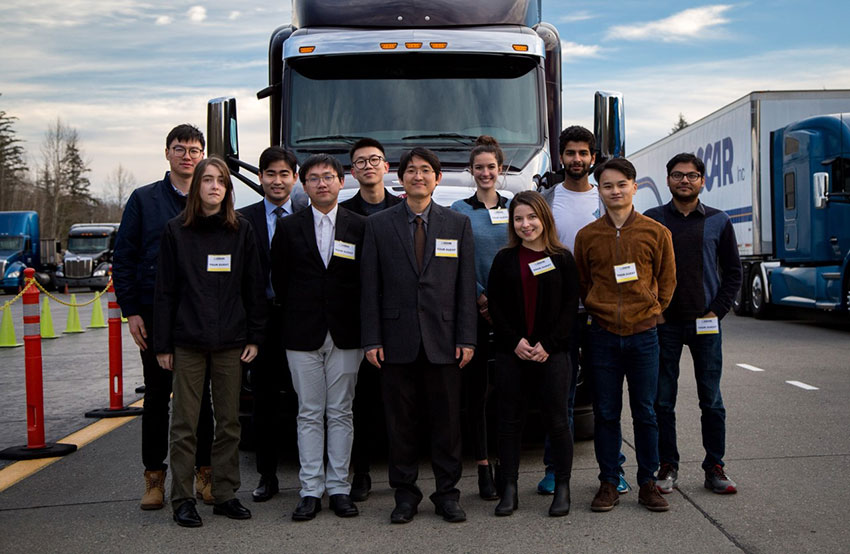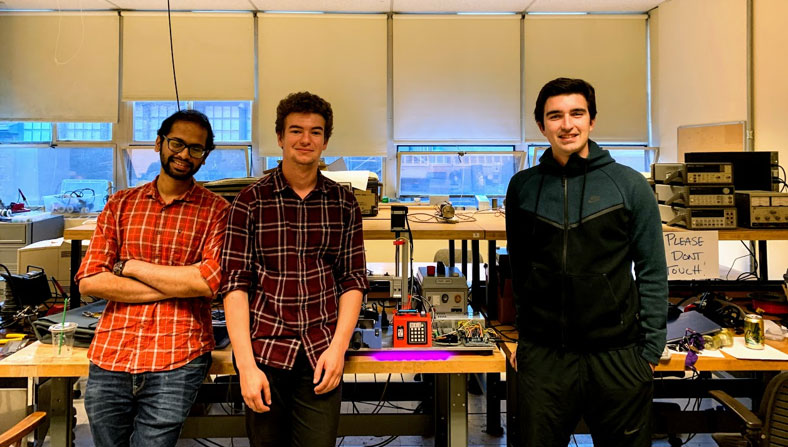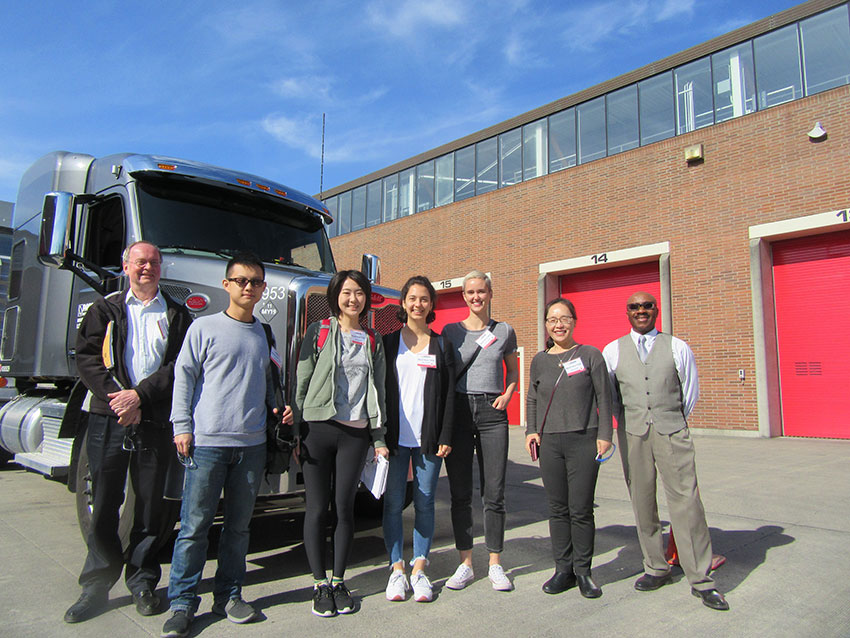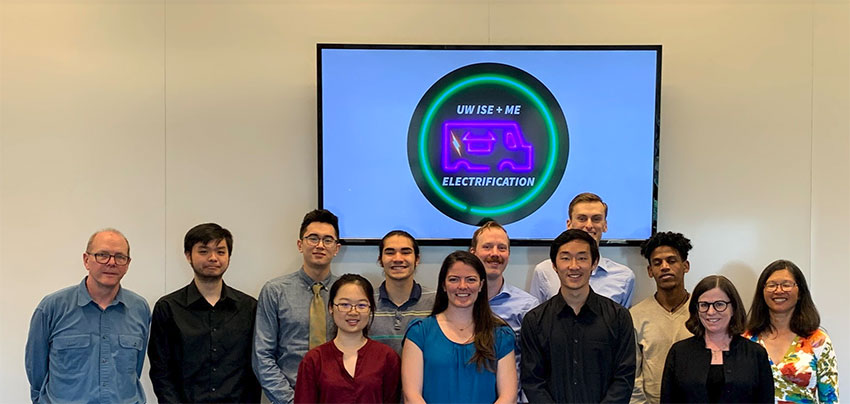Boeing
Powder Bed Fusion Seed Build
Hayrullah Kaan Fero
Zach Inoue
Hannah Lee
Alexander Montelione
Lyubomir Sukoparov
Jullio Tchouta
Ramulu Mamidala, Boeing-Pennell Endowed Professor, Mechanical Engineering
Powder bed fusion (PBF) technology has the capability to create complex shapes and features that are hard or impossible to machine with existing technology. PBF technology is currently expensive, and requires post processing to achieve acceptable surface finishes; it is therefore desirable to create a method to add features to existing parts or seed shapes using PBF without the need to create the entire part using PBF. The student team worked to create a process and plan for adding features to a seed part using the ARCAM Laser powder bed fusion machine.
